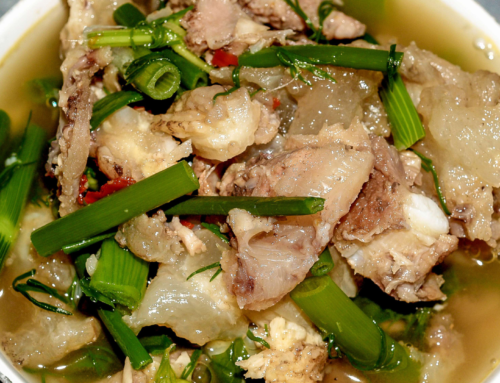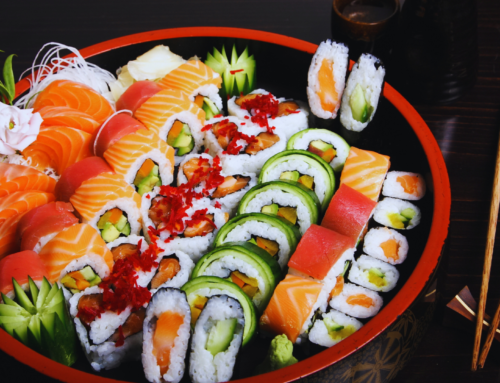When you look at the amount of fiber being consumed each day, it is no wonder that weight gain is such a common problem. Most people consume less than the recommended level of fiber, and as a result, they are susceptible to weight gain and other health conditions. The theory that eating a diet high in fiber can reduce the risk of colon cancer has been around for decades. But the evidence for this is still hotly debated. Could a high-fiber diet help boost cancer survival?
What is high-fiber?
A high-fiber diet may help reduce the risk of some types of cancer, but it won’t help you lose weight.
The high-fiber diet includes a lot of fiber in your diet, which helps to boost your daily bowel movements. Fiber is not only good for keeping your digestive system healthy, but it can also prevent constipation and eliminate toxins that may be building up in your body. Because fiber is not metabolized by the body, it passes through the digestive system unchanged and acts as a bulking agent. The only way fiber will help you lose weight is if you eat less and exercise more.
More About Fiber
Fiber is a type of carbohydrate that our stomachs can’t break down and absorb into our bodies. So, once it passes through our digestive system, it stays in our intestines, where it acts as a natural sponge, soaking up any water it can. This excess moisture is then eliminated through our bowel movements.
We all know fiber is good for us keeps our intestines running smoothly, makes us feel full faster, helps us regulate our blood sugar, and even helps prevent diseases like heart disease and cancer. But what we may not realize is that the best way to get fiber in our diets comes from whole grains, fruits, and vegetables, not from processed foods. According to the Institute of Medicine it’s also important to make sure the foods we eat contain enough fiber, since the recommended daily intake for the average American is only 25 grams.
It’s no secret that eating a high-fiber diet can lower your risk of heart disease, which is among the leading causes of death. But that’s not the only thing fiber can do for you. Research suggests that a high-fiber diet may help reduce your risk of cancer, too.
High-Fiber Diet: Is This Cure for Cancer?
Eat more fruits, veggies, and beans, and less processed foods. That’s the advice that proponents of a high-fiber diet seem to take most seriously. Some suggest that high-fiber foods are more filling, while others believe that they may decrease the risk of developing certain chronic diseases. However, these claims have not been supported by scientific studies. In fact, cancer patients undergoing treatments such as radiation therapy (see here to locate radiotherapy clinic in London) are frequently advised to consume a range of protein-rich, low-fat meals. Seafood, lean meat and poultry, Greek yogurt, eggs, beans, soy products, and unsalted nuts and seeds are also good choices. Some soy products are heavily processed and hence not as healthy as other varieties of soy.
For people who are updated about all things about health, you have probably heard a lot about the benefits of eating a super-healthy diet. There are a lot of conflicting opinions on what a high-fiber diet is and how it can benefit people with cancer. Most cancer advocates recommend eating a high-fiber diet to improve your chances of fighting tumor growth and surviving cancer.
Well, most of us take fiber as a given, but you might be surprised to find out that there is no consensus on whether it really works. Actually, it’s not clear if fiber helps or hinders cancer survival. Although research has shown that the effects of dietary fiber intake on the prevention of colorectal cancer have been inconsistent, some studies have supported a possible protective effect of dietary fiber on CRC.
What is the best way to boost cancer survival?
Early detection of cancer symptoms can significantly improve survival rates. For instance, if you notice unusual signs such as breast swelling, pain, or abnormal discharge, and promptly search for “mammogram near me in Morristown (or your local area)”, you may have taken a crucial step in catching cancer at an early stage. Detecting cancer in its infancy, well before it has a chance to spread, can dramatically enhance your chances of survival. This proactive approach not only increases the likelihood of successful treatment but also underscores the importance of vigilance and timely medical intervention in managing and overcoming cancer.
Besides this, a wealth of evidence also underscores the potential of a high-fiber diet in bolstering your prospects of triumphing over cancer. This is rooted in the profound impact of fiber on maintaining robust gut health, a factor intrinsically linked to diminishing the likelihood of cancer development.
The rationale behind the high-fiber diet’s potency lies in its ability to cultivate and sustain a flourishing gut microbiome, a vital component of overall health. A balanced gut ecosystem not only contributes to digestion and nutrient absorption but also exerts a significant influence on our immune system. A strengthened immune response can serve as a formidable ally in thwarting cancer’s progression.
Moreover, the significance of a well-curated diet is duly recognized by reputable centers focused on oncology & cancer support in Knoxville, TN, and comparable institutions elsewhere. These centers champion a comprehensive approach to healing, acknowledging the pivotal role that nutrition plays in the journey toward recovery.
While a high-fiber diet or a low-fat diet have both been shown to improve the survival rates of cancer patients, the effects of fiber on the disease have been debated. While some studies show that a high-fiber diet can reduce a patient’s risk of recurrence, others fail to detect a significant difference. Moreover, high-fiber diets can actually reduce a patient’s chance at survival by promoting constipation and decreasing a patient’s intake of nutrients that are important for cancer treatment.





Leave A Comment